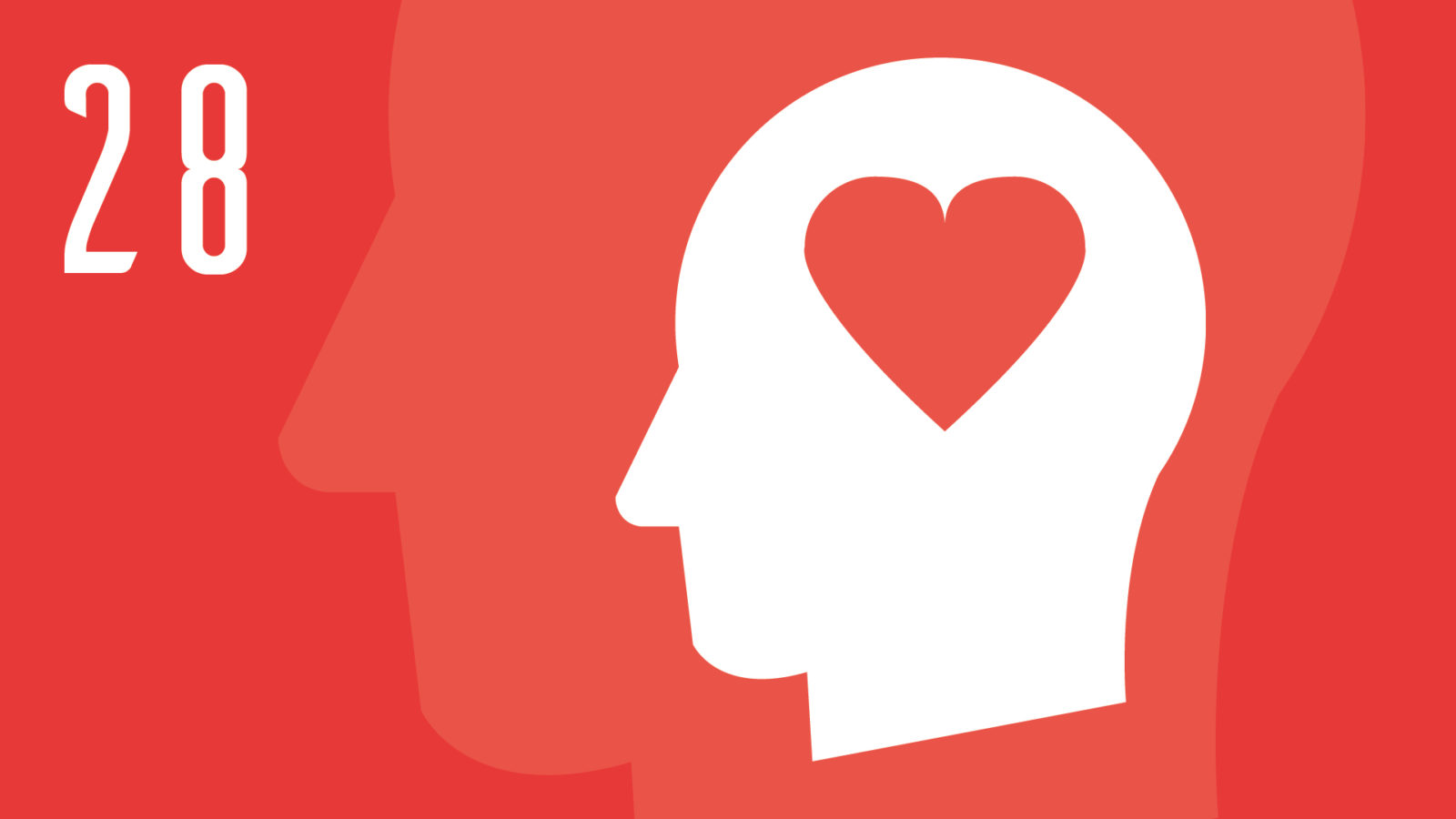The experience of Salvation
In infinite love and mercy God made Christ, who knew no sin, to be sin for us, so that in Him we might be made the righteousness of God. Led by the Holy Spirit we sense our need, acknowledge our sinfulness, repent of our transgressions and exercise faith in Jesus as Saviour and Lord, Substitute and Example. This saving faith comes through the divine power of the Word and is the gift of God’s grace. Through Christ we are justified, adopted as God’s sons and daughters, and delivered from the lordship of sin. Through the Spirit we are born again and sanctified; the Spirit renews our minds, writes God’s law of love in our hearts and we are given the power to live a holy life. Abiding in Him we become partakers of the divine nature and have the assurance of salvation now and in the judgement. (Genesis 3:15; Isaiah 45:22; 53; Jeremiah 31:31-34; Ezekiel 33:11; 36:25-27; Habakkuk 2:4; Mark 9:23, 24; John 3:3-8, 16; 16:8; Romans 3:21-26; 8:1-4, 14-17; 5:6-10; 10:17; 12:2; 2 Corinthians 5:17-21; Galatians 1:4; 3:13, 14, 26; 4:4-7; Ephesians 2:4-10; Colossians 1:13, 14; Titus 3:3-7; Hebrews 8:7-12; 1 Peter 1:23; 2:21, 22; 2 Peter 1:3, 4; Revelation 13:8.)
Sitting atop your shoulders is the most complex object in the universe: your brain. It contains approximately 100 billion neurons, each connecting to 10,000 other brain cells that are constantly reshaping themselves in a process known as neuroplasticity. This milieu of ever-changing organic matter is organised into sophisticated functional areas linked by numerous neuronal pathways.
One of these areas is the frontal lobe of the cerebral cortex. It plays a pivotal role in controlling higher mental functions such as voluntary movement, concentration, planning, emotional expression, judgement and decision making.1
Scientists know the frontal lobe executes these functions but they do not know how it executes them. The brain that we can touch and see somehow produces something we cannot touch or see. The organic creates something inorganic. In fact, something immaterial—the mind.
A cursory assessment of the nature of the human mind accentuates a glaringly obvious problem. We all have an innate, intrinsic disposition to serve self.
Fyodor Dostoyevsky once wrote, “I say let the world go to hell, but I should always have my tea” (Notes from Underground). In other words, I don’t care what happens to anyone as long as I get what I want. Sadly, this is too often true of our own minds. The reality of consciousness, our ability to feel, perceive, experience and make choices accordingly, seems tarnished by the desire to serve self.
The Bible makes an audacious claim. It states we are all in need of saving. Romans 3:23 says, “for all have sinned and fall short of the glory of God”. The Bible states our condition is flawed, fallen and infected with sin and that subsequently we need saving. Saving from what? From our self-centered mind.
The Bible illuminates how salvation is achieved. Ephesians 2:8,9 says, “For by grace you have been saved through faith, and that not of yourselves; it is the gift of God, not of works, lest anyone should boast.”
This is the defining feature of the gospel. The transliterated Greek word for saved is Sozo. Sozo literally means “to save a suffering one”, “to heal”, “to make whole”. The Bible asserts that salvation from our self-centred mind is not achieved through anything we do ourselves. No amount of internal focus, mindful chastisement or rigid disciplinary action that any other repair system offers can mend the selfish minds we possess. This is because they all centre on what morally broken humans must do to fix themselves.
Jesus transforms our selfish, sin-sick minds by turning our focus from ourselves to others. The Bible admonishes us in Philippians 2:5 to “let this mind be in you which was also in Christ Jesus”. [pullquote]
Ellen White describes Jesus’ humility and selfless death on behalf of humanity. Jesus “was treated as we deserve, that we might be treated as He deserves. He was condemned for our sins, in which He had no share, that we might be justified by His righteousness, in which we had no share. He suffered the death which was ours, that we might receive the life which was His. By His stripes we are healed.”2
Infinite grace. Unutterable descension. God Himself became a human being and, in our same human nature, lived a perfect life of selfless love, inasmuch as is possible experienced the eternal separation of God, rose from this death and ascended to heaven, victorious on your and my behalf.
Jesus decided He would save humanity at any cost to Himself and when we understand this, we repent of our sin that caused Him such pain. Romans 12:2 says we are “transformed by the renewing of our mind”. Jesus takes our heart of stone and replaces it with a heart of flesh (Ezekiel 36:25-27) and we begin to live for others. This is the experience of salvation; the act of healing that turns our minds from attributing all transformation and self-improvement from ourselves to God.
I am a sixth generation Seventh-day Adventist. I grew up in the Church to God-fearing parents and, like Paul, could have boasted of my birthright and religiosity (Philippians 3:4-8). I attended faithfully, sang songs and tried in my own strength to do the right thing.
Yet Jesus was not my reality. I was not experiencing salvation.
In late high school I decided to put the Bible to the test and committed to reading my Bible an hour a day. Initially, waking at 6am was tedious and unfulfilling, but I persisted. As I discovered Bible truths and started each day with prayer I noticed a change within me. Jesus became my best Friend and Confidant. Those close to me noticed a change in my behaviour and demeanour.
Through no effort of my own I became a different person. Jesus sozo’ed me. He continues to heal my self-centred mind and make me whole.
In his book The Last Battle, CS Lewis writes of Emeth, a devoted follower of the god Tash. Towards the end of the book, Emeth is speaking to the royal subjects of Narnia of his encounter with Aslan (Jesus) in Aslan’s country (heaven). Lewis pens:
So I, Emeth, went over much grass and many flowers and among all kinds of wholesome and delectable trees till lo! In a narrow place between two rocks there came to meet me a great Lion. The speed of Him was like the ostrich, and His size was an elephant’s; His hair was like pure gold and the brightness of His eyes, like gold that is liquid in the furnace. He was more terrible than the flaming mountain and in beauty He surpassed all that is in the world, even as the rose in bloom surpasses the desert dust. Then I fell at His feet and thought, surely this is the hour of my death, for the Lion (who is worthy of all honour) will know that I have served Tash all my days and not Him. Nevertheless, it is better to see the Lion and die than to be scum of the world and live and not to have seen Him. But the Glorious One bent down His golden head and touched my forehead with His tongue and said, Son, thou art welcome. And since then O Kings and Ladies . . . my happiness is so great that it even weakens me like a wound. And this is the marvel of marvels, that He called me Beloved, me who am but as a dog.
Like in Emeth’s experience, sin has plagued you and me all the days of our lives. Whatever you have done, whatever sin you have committed, however self-centred the mind in your intricate brain has become, Jesus died to sozo you. To heal you from the sickness of selfishness. And in the marvel of marvels, sinner, He calls you beloved.

Brent Whittaker is a medical student studying in Port Macquarie, NSW.






